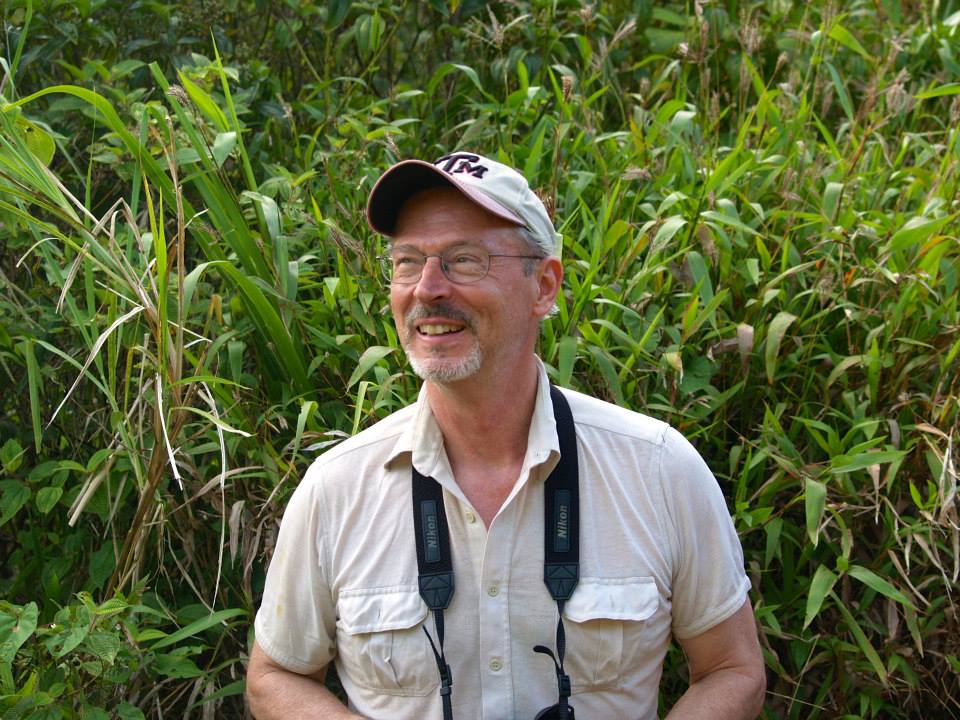Lacher retires from dual roles at Texas A&M
Hailed as global leader in conservation biology, improving biodiversity in coffee
Thomas Lacher, Ph.D., director of Texas A&M’s Center for Coffee Research and Education, CCRE, and professor for over 20 years in the Department of Ecology and Conservation Biology, retires at the end of June. He has been a global leader in both roles.

Lacher, serving as director of the CCRE of the Norman Borlaug Institute for International Agriculture’s coffee center for the last year, has worked to incorporate innovations to coffee production practices.
“Dr. Lacher has brought awareness of the value and environmental sustainability of agroforestry as applied to coffee,” said Elsa Murano, Ph.D., director of the Borlaug Institute.
Coffee agroforestry consists of producing coffee under a canopy of native trees. This creates habitat for biodiversity to thrive and serve as natural control agents against pests, such as the coffee borer beetle. Such innovative practices are essential for small-holder coffee producers in developing countries to be able to thrive in a competitive market, enhancing their livelihoods and elevating them out of poverty.
In his professor role, Kirk Winemiller, Ph.D., interim department head of the Department of Ecology and Conservation Biology in the College of Agriculture and Life Sciences, described Lacher as a leader in biodiversity conservation.
Winemiller highlighted Lacher’s longstanding and prominent role as co-chair of the Species Survival Commission of the International Union for the Conservation of Nature and Natural Resources.
“With his many students and international collaborators, Dr. Lacher has documented the status of mammal species worldwide as well as threats to their continued survival,” Winemiller said. “This work is critically important for formulation of policies and conservation strategies, often requiring international cooperation, to counter multiple impacts affecting Earth’s changing biosphere.”
Norton taking the reins of the coffee center
Roger Norton, Ph.D., was selected to succeed Lacher as director of the CCRE beginning July 1.
Norton is currently leading the Borlaug Institute’s Latin America and the Caribbean region. In that role, Norton has worked extensively with coffee producers and value chains while implementing Borlaug Institute projects. This has prepared him well to continue to build on Lacher’s contributions, Murano said. Norton will continue to serve as the Borlaug Institute’s regional director for Latin America and the Caribbean for 2021.
“Dr. Murano and I are extremely delighted and excited about the leadership, international experience and innovation that Dr. Roger Norton will provide as he takes the helm of the CCRE,” said Ambassador (Ret.) Eric Bost, deputy director of the Borlaug Institute.
The Borlaug Institute, a unit of Texas A&M AgriLife, designs and implements science-based agriculture development and training programs from production to consumption in order to elevate small-holder agricultural communities in developing countries through science and innovation. CCRE’s mission is to improve the quality and supply of coffee globally through research and capacity building.


